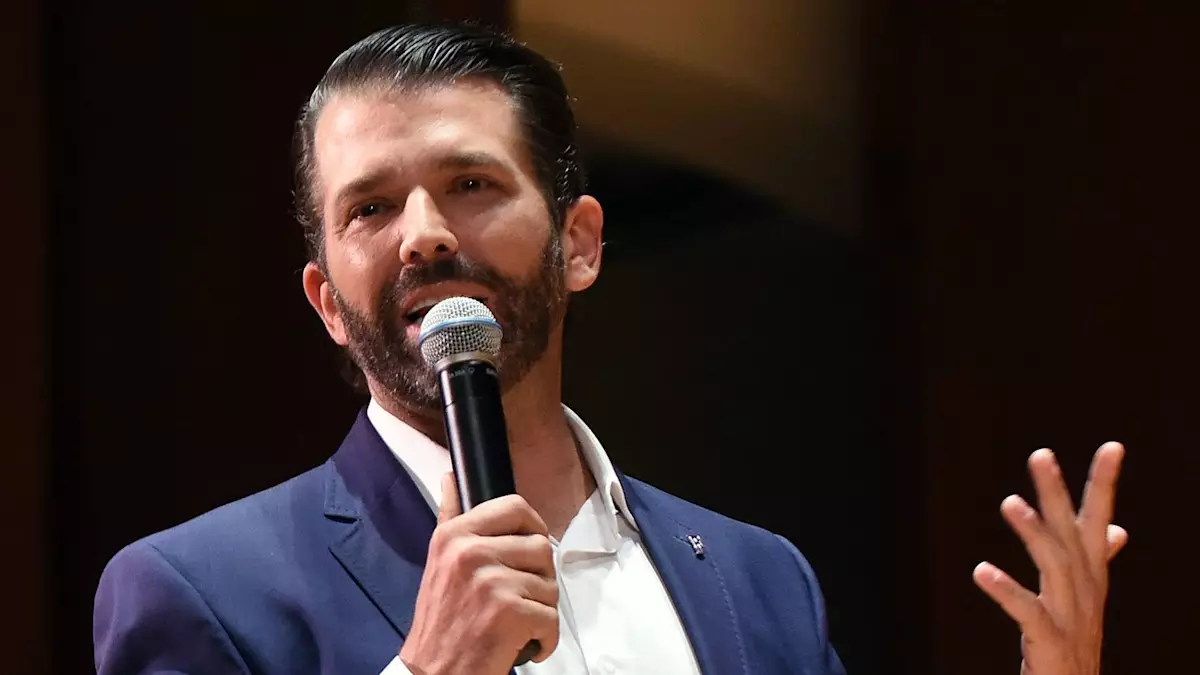In a time characterized by heightened sensitivity and social media vigilance, Donald Trump Jr.’s flippant remarks regarding President Joe Biden’s recent cancer diagnosis have ignited a firestorm of criticism. The 82-year-old leader’s office announced that he is battling an aggressive form of prostate cancer, a revelation that initially drew condolences and well-wishes from across the political spectrum. However, Trump’s son quickly interjected with a tone that many interpreted as callous, suggesting that Biden’s diagnosis was somehow suspicious and part of a larger “cover-up.” This reaction raises critical questions about empathy in political discourse—and whether sarcasm has a rightful place when discussing someone’s health.
The incident demonstrates a worrying trend where some political figures appear more interested in exploiting personal misfortune for political gain rather than extending basic humanity or compassion for their rivals. The dismissal of Biden’s dire diagnosis, through a lens of conspiracy theory, has been met with immediate backlash. Public figures and social media commentators have labeled his remarks as “despicable,” emphasizing not only the insensitivity but also the broader implications of trivializing serious health concerns.
From Sarcasm to Misunderstanding: The Twitter Tangle
Trump Jr. later attempted to frame his initial remarks as sarcasm, claiming that he was simply drawing attention to the supposed incompetency of Dr. Jill Biden, who holds a PhD in education but not a medical degree. This deflection sparked even more criticism, with many observers highlighting a significant gap in his understanding between different fields of expertise. Comments on social media quickly pointed out the absurdity of questioning someone’s qualifications while lacking knowledge himself. Critics pointedly indicated that the real conversation should not have strayed from the grave news at hand but instead centered around the contentious climate in which such news is enveloped.
The ongoing exchanges illustrate a toxic undercurrent in the current political climate. Trump Jr.’s insistence on maintaining the façade of sarcasm highlights not only his strained relationship with reality but also the alarming tendency to view serious issues as ammunition in a political arsenal. Social media has served as a powerful magnifying glass, reflecting back the ignorance and arrogance that can bubble up when individuals prioritize attacking opponents over showcasing empathy.
Biden’s Response: A Moment of Humanity Amid Chaos
In stark contrast to the flippant and caustic rhetoric from Trump Jr., President Biden’s response to the news of his health posed a lesson in humility and grace. His poignant message, which acknowledged the emotional weight of cancer alongside a heartfelt photo of him and Dr. Jill Biden with their cat, turned the conversation back to an essential truth: cancer is a shared human experience that affects everyone, irrespective of political allegiance. Biden’s assertion that “we are strongest in the broken places” offers a sobering reminder that kindness is a necessary antidote to the culture of division.
While the political machinations are susceptible to miscommunication and misinterpretation, it’s crucial to focus on individual health battles with the weight they inherently possess. Biden’s approach sheds light on the need for a more compassionate and understanding discourse—one that prioritizes human experience over political strategy. This is particularly important when public figures face life-altering revelations.
Inevitability of Accountability in Public Comments
As social media continues to influence public dialogue, the consequences of unfiltered comments can reverberate far beyond the tweet or post itself. Trump’s son found himself quickly out of touch with the prevailing sentiment, revealing not only the pitfalls of conspiratorial thinking but also the disconnection from the realities that everyday people face when considering health crises. Online backlash that emphasizes the need for accountability serves as a reminder that every statement made by public figures carries weight and should reflect a fundamental respect for life.
Donald Trump Jr. missed an opportunity to lead the conversation toward a more respectful tone. Instead, he chose to engage in a format that only perpetuates division and antagonism, relegating him to a role that fails to provide constructive dialogue or foster a sense of shared humanity. As the political landscape continues to evolve, the importance of maintaining a semblance of civility and respect must remain at the forefront of discourse, especially in matters that touch upon the vulnerabilities inherent in the human condition.

